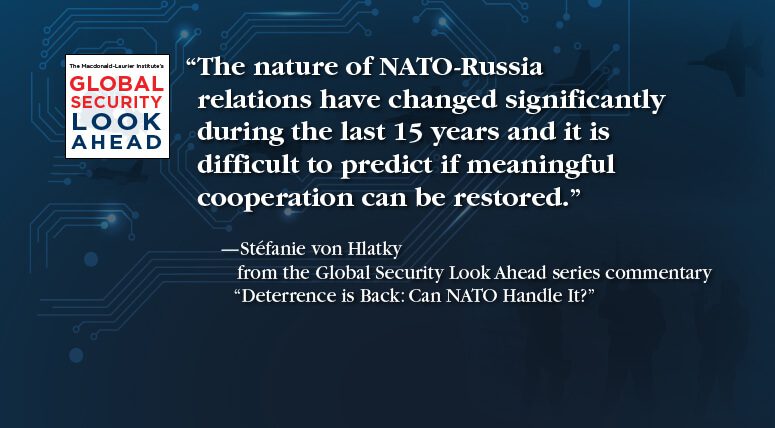The need to deter Russia’s expansionism has returned, and NATO will have to adapt
OTTAWA, Feb. 8, 2017 – Can Russia and the members of the North Atlantic Treaty Organization create meaningful cooperation out of their currently combustible relationship?
That remains unclear, says the latest entry in the Macdonald-Laurier Institute’s Global Security Look Ahead series.
 Stéfanie von Hlatky, an Assistant Professor of Political Studies at Queen’s University and Director of the Centre for International and Defence Policy, traces the divide between Russia and NATO member states as it has grown over the last 15 years.
Stéfanie von Hlatky, an Assistant Professor of Political Studies at Queen’s University and Director of the Centre for International and Defence Policy, traces the divide between Russia and NATO member states as it has grown over the last 15 years.
“The political rhetoric of the last two years demonstrates the incompatibility of Russia’s and NATO’s strategic goals”, writes Hlatky. “Beyond the tense conversations, NATO has also shown its disapproval physically by strengthening collective defence and enhancing deterrence”.
Now each side is placing a renewed emphasis on deterrence – both using nuclear weapons and conventional means such as military battalions, with a growing NATO military presence in Poland and the Baltics.
To read the full commentary, click here.
***
Stéfanie von Hlatky is an Assistant Professor of Political Studies at Queen’s University and Director of the Centre for International and Defence Policy.
The Macdonald-Laurier Institute is the only non-partisan, independent national public policy think tank in Ottawa focusing on the full range of issues that fall under the jurisdiction of the federal government.
For more information, please contact Mark Brownlee, communications manager, at 613-482-8327 x105 or email at mark.brownlee@macdonaldlaurier.ca.





